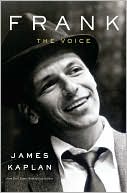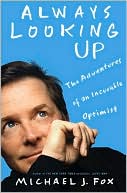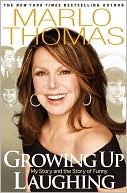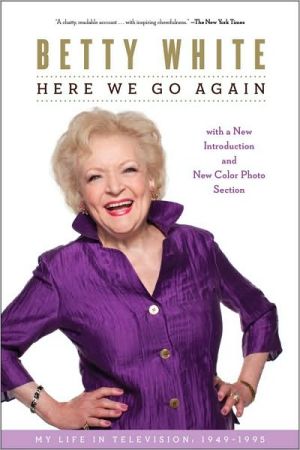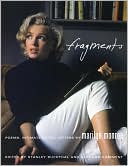John Wayne: The Man Behind the Myth
No legend ever walked taller than Hollywood icon John Wayne. Now, author Michael Munn's startling new biography sets the record straight on why Wayne didn't serve in World War II, on director John Ford's contribution to Wayne's career, and the mega-star's highs and lows: three failed marriages, and two desperate battles with cancer. Munn also discloses publicly, for the first time, Soviet dictator Josef Stalin's plot to assassinate Wayne because of his outspoken, potentially influential...
Search in google:
No legend ever walked taller than Hollywood icon John Wayne. Now, author Michael Munn's startling new biography sets the record straight on why Wayne didn't serve in World War II, on director John Ford's contribution to Wayne's career, and the mega-star's highs and lows: three failed marriages, and two desperate battles with cancer. Munn also discloses publicly, for the first time, Soviet dictator Josef Stalin's plot to assassinate Wayne because of his outspoken, potentially influential anti-Communist views. Drawing on time spent with Wayne on the set of Brannigan- and almost 100 interviews with those who knew him-Munn's rare, behind-the-scenes look proves this "absolute all-time movie star" was as much a hero in real life as he ever was on-screen. Publishers Weekly According to this congenial biography by film journalist Munn, movie legend Wayne (1907-1979) was a hard worker who held tight to his beliefs and what he thought he should show on screen. Wayne's career did have its share of controversy (although he starred in cutthroat war films, Wayne didn't sign up for military service in WWII; he rejected communism, which made him the object of Stalinist threats; and the actor's given name is still debated), and Munn deftly addresses those hullabaloos while providing an overview of the actor's accomplishments. After playing football at USC, Wayne worked as a studio prop man, coming into early contact with director John Ford, who would direct Wayne in some of his most memorable performances, including 1952's The Quiet Man. Throughout their association, Ford treated Wayne erratically, disparaging his talents and lashing out at him for accepting a lead role from rival director Raoul Walsh (The Big Trail, 1930). Yet Ford and Wayne collaborated on 1939's Stagecoach, which gave birth to the serious western and the Ford-Wayne movie subgenre. Other highlights include Wayne's emergence as a heavy in 1948's Red River and his ferocious performance in 1956's The Searchers. Munn portrays the actor in his personal life as a man's man, who sustained friendships with tough cohorts like stuntman Yakima Canutt but failed in romance. Although the book takes an odd turn toward the end, when Munn links Wayne's patriotism and heroic persona to the heroic actions after September 11, overall, it's a fine tribute. (Mar. 2) Copyright 2004 Reed Business Information.
\ Publishers WeeklyAccording to this congenial biography by film journalist Munn, movie legend Wayne (1907-1979) was a hard worker who held tight to his beliefs and what he thought he should show on screen. Wayne's career did have its share of controversy (although he starred in cutthroat war films, Wayne didn't sign up for military service in WWII; he rejected communism, which made him the object of Stalinist threats; and the actor's given name is still debated), and Munn deftly addresses those hullabaloos while providing an overview of the actor's accomplishments. After playing football at USC, Wayne worked as a studio prop man, coming into early contact with director John Ford, who would direct Wayne in some of his most memorable performances, including 1952's The Quiet Man. Throughout their association, Ford treated Wayne erratically, disparaging his talents and lashing out at him for accepting a lead role from rival director Raoul Walsh (The Big Trail, 1930). Yet Ford and Wayne collaborated on 1939's Stagecoach, which gave birth to the serious western and the Ford-Wayne movie subgenre. Other highlights include Wayne's emergence as a heavy in 1948's Red River and his ferocious performance in 1956's The Searchers. Munn portrays the actor in his personal life as a man's man, who sustained friendships with tough cohorts like stuntman Yakima Canutt but failed in romance. Although the book takes an odd turn toward the end, when Munn links Wayne's patriotism and heroic persona to the heroic actions after September 11, overall, it's a fine tribute. (Mar. 2) Copyright 2004 Reed Business Information.\ \ \ \ \ Library JournalTwenty-five years after his death, John Wayne still holds the public's attention. Many continue to see him as a man's man, as staunch an American patriot as he portrayed in many films (e.g., Sand of Iwo Jima; The Alamo). Other biographies of Wayne have been published recently (e.g., Ronald Davis's Duke), but Munn claims that his stands out owing to his friendship with Wayne in the 1970s, which gave him access to many of Wayne's friends and colleagues. Munn, a British writer with 18 books under his belt, including biographies of Charlton Heston and Frank Sinatra, here outlines Wayne's life and career, but the book's raison d'Etre is to "put the record straight in response to attempts to blight [Wayne's] reputation" as an aggressive anti-Communist. Munn's big revelation is that Russian agents attempted to assassinate Wayne. Though this is an entertaining read, with many seemingly new details, the book suffers from Munn's having interviewed all his sources in the 1970s; now, many of them are dead, and there is no one to corroborate some of his claims, especially the dialog that embellishes the stories. Much of it seems far-fetched, but who knows? Truth is often stranger than fiction. Recommended for public libraries that serve celebrity gossip-heads.-Rosellen Brewer, Monterey Cty. Free Libs., Salinas, CA Copyright 2004 Reed Business Information.\ \

